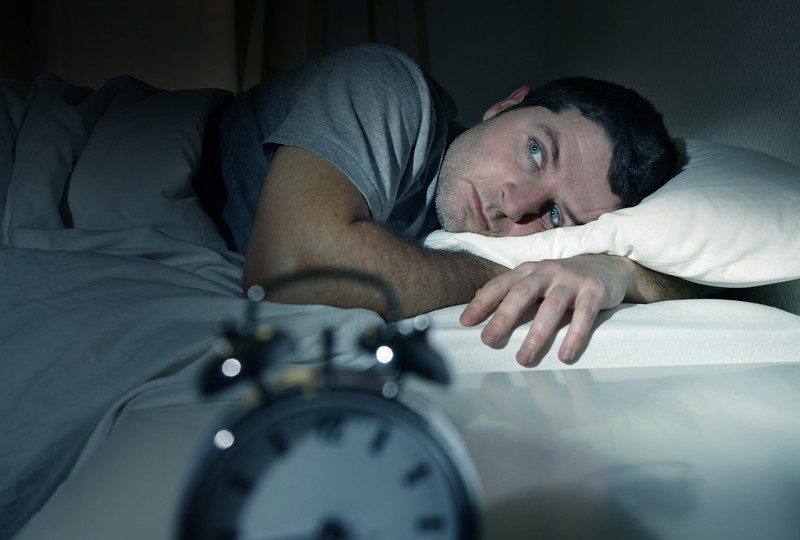Every purchase made online is encrypted with a high level of security you’ve come to expect. Your private information is never shared nor sold, so you can buy with confidence. You can also visit our store if you are in the St. Louis area.

Estimated reading time: 4 minutes
Understanding insomnia is the key to fixing the problem. One question that often arises is whether or not insomnia is hereditary. If your father woke up early each morning without an alarm or your grandmother burned the midnight oil since she could not sleep, does that mean you will do the same?
Table of Contents
Related Links
People with insomnia experience different symptoms depending on whether they have onset or maintenance insomnia. With onset insomnia, one may have trouble falling asleep, while with maintenance insomnia, he or she may be unable to stay asleep. It’s also possible to wake up too early in the morning and be unable to go back to sleep.
Most Cases Of Insomnia Are Related To:
- Poor sleep habits
- Depression
- Anxiety
- Lack of exercise
- Chronic illness
- Some medications
Symptoms of insomnia include difficulty falling or staying asleep and not feeling well rested while treatment varies and can include improving sleep habits, behavior therapy, sleeping pills (if monitored properly by a doctor), as well as identifying and treating the specific causes of the sleep problem.
DNA And Insomnia
DNA, or deoxyribonucleic acid, is the carrier of genetic information, such as hair or eye color, dominant hand, and similar attributes. According to one study, it’s possible that the sleep disorder of insomnia may be connected to DNA and, therefore, hereditary.

Scientists believe that some people’s genes may increase their reaction to stress and that this increased stress response also increases the likelihood that one will experience poor sleep, such as insomnia. Interestingly, poor sleep can result in an interruption of one’s normal gene function, thereby leaving people in a sickening cycle of sleep deprivation, according to Terry Cralle, a certified clinical sleep educator, a consultant for the American Sleep Apnea Association, and director of Business Development at the Texas-based Woodlands Sleep Evaluation Center.
“Genes are involved with how much sleep you need, and it is estimated that there could be six or more different types of insomnia linked to genes,” says Cralle.
One week of mild sleep deprivation can affect as many as 711 different genes and their normal functioning. Cralle adds that research has found that daytime sleeping can disrupt about one-third of an individual’s genes. The disruption throws off a person’s circadian rhythm, which is the cycle within a 24-hour period that tells the body when to sleep. Circadian rhythm also affects other bodily functions like metabolism, inflammation, stress, and immune response.
“Genes carry the instructions for making proteins in the body. These proteins make up the chemical signals and hormones that regulate the body and many processes like sleep,” states Cralle.
Is Insomnia In Your DNA?
Genetic testing is the only sure way of discovering if insomnia is in your DNA, but there are other ways that might help you uncover the truth. Speaking with your relatives, for instance, will allow you to know if your family experiences similar problems. Talk to as many relatives as possible, because the more information that you gather, the more accurate your guess will be. If you uncover that you are genetically predisposed to insomnia, you will want to discuss possible remedies with your family.
But do not forgo seeing your doctor. “Consult your physician about the effect genes can have on sleep, as well as other factors like stress, diet, and sleep hygiene,” Cralle recommends. Your doctor may be able to prescribe medicine to help in your quest for sleep. However, you may want to try natural remedies before resorting to medication.
Cralle suggests winding down early in the evening for a few hours prior to bed. This means cutting out television and other screen time, which can affect your brain’s ability to relax. Keep a regular nighttime routine to warn your body that it’s almost time to sleep. Cralle also says that a cozy and inviting bedroom is a key element in a good night’s sleep. “These habits can help increase the odds you’ll fall, and stay, asleep,” she says.
Contact STL Beds Now
You can also contact us by filling out the form below. Make sure to fill in as many fields as possible so we can respond to you with the most accurate information!
